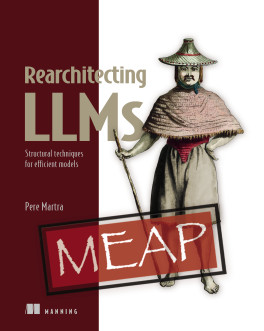pro $24.99 per month
- access to all Manning books, MEAPs, liveVideos, liveProjects, and audiobooks!
- choose one free eBook per month to keep
- exclusive 50% discount on all purchases
- renews monthly, pause or cancel renewal anytime
lite $19.99 per month
- access to all Manning books, including MEAPs!
team
5, 10 or 20 seats+ for your team - learn more

Look inside
In this liveProject, you’ll use the DistilBERT variation of the BERT Transformer to detect and block occurrences of spam emails in a data set. You’ll utilize binary classification to determine whether an email is spam, or legitimate. The DistilBERT model uses knowledge distillation to highly reduce the size of the transformer model, thus optimizing time and resources. You’ll learn to use the HuggingFace library to load your data set, and fine-tune it to your task with PyTorch Lightning. You’ll also explore alternative training approaches that utilize novel APIs in the transformers library to fine-tune pre trained DistilBERT models. Every part of an NLP pipeline is covered, from preprocessing your data to remove symbols and numbers, to model training and validation using F1-scoring to assess the robustness of your pipeline.
This project is designed for learning purposes and is not a complete, production-ready application or solution.
prerequisites
This liveProject is for intermediate Python and NLP practitioners who are interested in implementing pretrained BERT architectures and customizing them to solve real-world NLP problems. To begin this liveProject you will need to be familiar with:TOOLS
- Intermediate Python
- Intermediate PyTorch
- Basics of Google Colab
- Basics of machine learning
- Basics of neural networks
- Basics of natural language processing
 features
features
- Self-paced
- You choose the schedule and decide how much time to invest as you build your project.
- Project roadmap
- Each project is divided into several achievable steps.
- Get Help
- While within the liveProject platform, get help from fellow participants and even more help with paid sessions with our expert mentors.
- Compare with others
- For each step, compare your deliverable to the solutions by the author and other participants.
- book resources
- Get full access to select books for 90 days. Permanent access to excerpts from Manning products are also included, as well as references to other resources.
choose your plan
team
monthly
annual
$49.99
$499.99
only $41.67 per month
- five seats for your team
- access to all Manning books, MEAPs, liveVideos, liveProjects, and audiobooks!
- choose another free product every time you renew
- choose twelve free products per year
- exclusive 50% discount on all purchases
- renews monthly, pause or cancel renewal anytime
- renews annually, pause or cancel renewal anytime
-
![]() Spam SMS Detection project for free
Spam SMS Detection project for free


















 Spam SMS Detection project for free
Spam SMS Detection project for free